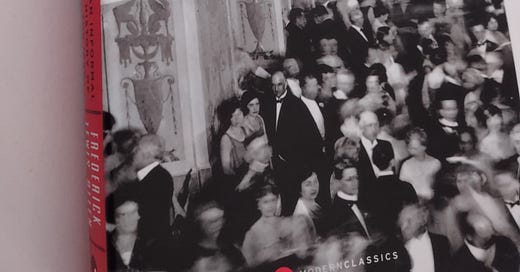Decades or centuries of detachment can lead to accurate, unbiased accounts of important moments in time. But chronicling history immediately after the fact also has its advantages. Specific details may require healthy skepticism, as hidden facts could emerge in later years or contemporary biases might intrude upon the narrative.
However, the best way to capture the general atmosphere of an era is to write it all down while it’s fresh in living memory. And that’s what Frederick Lewis Allen did in Only Yesterday: An Informal History of the 1920s.
First published in 1931, the book takes us from the end of the war through subsequent prosperity and ultimately to the 1929 stock market crash and its aftermath. You will not find “World War I” in the text, as the need for that numbering did not yet exist. The only Roosevelts mentioned are Theodore and his sons. At the time of the book’s writing, the world hadn’t even met Superman, Batman, or Wonder Woman yet.
But it was a changing world, one in which people were ready to part ways with wartime austerity and have some fun. According to Allen, Republican leaders were specifically looking for a presidential candidate who would be the exact opposite of oh-so-serious Woodrow Wilson, and they found their man in Warren G. Harding.
“Wilson was a visionary who liked to identify himself with ‘forward-looking men’; Harding, as Mr. Lowry put it, was as old-fashioned as those wooden Indians which used to stand in front of cigar stores. … Wilson was cold; Harding was an affable small-town man, at ease with ‘folks’; an ideal companion, as one of his friends expressed it, ‘to play poker with all Saturday night.’”
Harding was, perhaps, the original candidate you’d choose to “have a beer” with. This, it turns out, is an unreliable gauge of presidential effectiveness, as scandals plagued the Harding Administration even after Harding himself died. Allen recounts these in detail, devoting an entire chapter to “Harding and the Scandals.”
Despite a general relaxing of morals, the prohibition of alcohol somehow took hold during this era. Allen describes how it snuck into law while other matters occupied the nation’s attention.
Allen writes:
“Nothing in recent American history is more extraordinary, as one looks back from the nineteen-thirties, than the ease with which—after generations of uphill fighting by the drys—prohibition was finally written upon the statute-books. The country accepted it not only willingly, but almost absent-mindedly.”
Part of Prohibition’s success, Allen says, was that the forces for it were organized while the forces against it were not. Plus, the war gave the “dry leaders” a tremendous opportunity.
“The war diverted the attention of those who might have objected to the bone-dry program: with the very existence of the nation at stake, the future status of alcohol seemed a trifling matter.”
From there, as you’d expect, Allen details the illegal activity that arose after alcohol itself became illegal.
Plenty of other topics, large and small, also receive attention in the book. One chapter, “The Ballyhoo Years,” describes some of the fads that took hold during the 1920s. Among them, the crossword puzzle book emerged in 1924, resulting in a brief craze. Charles Lindbergh’s famous flight also captured the public’s imagination and elevated him to heroic stature. Generally, newspapers were learning to hyper-focus on one sensational story at a time.
Only Yesterday does not hyper-focus. It covers a wide range of political, social, and cultural issues, presenting them all in a clear and highly readable manner. Even after all these decades, Allen’s prose comes across as lively and engaging.
Read the book, and explore the 1920s.





